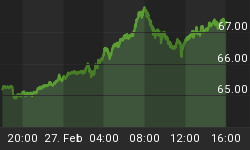... Chinese Economy Already in Hard Landing? Regardless, It's Too Late to Prevent Chaos
JPMorgan analyst Adrian Mowat says Chinese Economy Already in 'Hard Landing'
"If you look at the Chinese data, you should stop debating about a hard landing," Mowat, who is based in Hong Kong, said at a conference in Singapore yesterday. "China is in a hard landing. Car sales are down, cement production is down, steel production is down, construction stocks are down. It's not a debate anymore, it's a fact." His team was a runner-up for best Asian equity strategists in a 2011 Institutional Investor magazine poll.
Mowat said in May the risk of a hard landing was building in China as fixed-asset investment in real estate had increased even as property demand remained weak. That meant residential inventories will increase and lead to a contraction in construction activity, he said in a May 17 interview.
Gary Shilling, president of A. Gary Shilling & Co., a Springfield, New Jersey-based consultancy firm, said on Feb. 2 that China's economy is headed for a "hard landing" this year as weaker demand overseas chokes off exports. Shilling, who correctly forecast the U.S. recession that began in December 2007, defines a hard landing as a growth rate below 6 percent.
Shilling and Mowat's views are in contrast with Yale University Professor Stephen Roach, a former non-executive chairman for Morgan Stanley in Asia, who said on March 8 that concerns China will enter a hard landing are "vastly overblown."
"I don't think the banking system will collapse and the property bubble will burst," Roach said at a conference in Shanghai. "These are all exaggerations."
Roach's Misses the Boat
Bubbles always burst. Moreover, it should be plain to see
- China has a huge property bubble
- China's banking sector is unsound
- China's state-owned-enterprises (SOEs) are in horrible shape
- China's over-reliance on investments with no genuine economic feasibility guarantee China's current boom is not sustainable.
"Hard Landing" Depends on the Definition
Shilling says growth under 6% is a hard landing. Michael Pettis at China Financial Markets makes a strong case for Only 3% Growth for Decade
I think Pettis' growth target is correct, but I am not sure he calls that result "a hard landing". I do, and it will shock a lot of people when it happens.
Jim Chanos is not one of those who will be surprised. He is betting on growth as low as 0% as noted in China's Growth Won't Last; Chanos on Chinese Property Bubble and Growth.
"Curbs Needed to Avoid China Property Chaos"
Even Chinese Premier Wen Jiabao knows China has a property bubble, one that has already popped but has much further yet to fall.
Bloomberg reports Wen Says Curbs Needed to Avoid China Property 'Chaos'
Chinese Premier Wen Jiabao said that home prices remain far from a reasonable level and relaxing curbs could cause "chaos" in the market, indicating no imminent relaxation of cooling measures.
"We must not slacken our efforts in regulating the housing sector," Wen said at a press conference in Beijing today, according to an English translation. A bursting property bubble would hurt the entire economy, and the government wants "long- term steady and sound growth" in housing, he said.
Too Late to Prevent Chaos
Chinese property bubbles and malinvestments are too big, and the Chinese economy too unbalanced to prevent chaos. Indeed the only way to prevent chaos is to not let bubbles form in the first place.
The only question at hand regards the strength and length of the slowdown. I think Pettis has things about right, but I would also caution that risks are far skewed to the downside.















